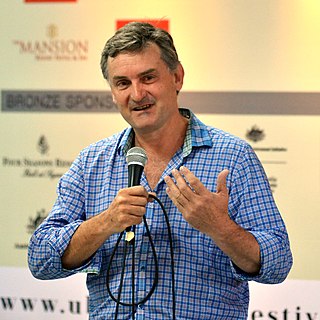A Quote by James Fallows
Contrary to what you might think, China's economy is relatively less efficient, and more polluting, than those of rich countries.
Related Quotes
The US economy, because it's so energy wasteful, is much less efficient than either the European or Japanese economies. It takes us twice as much energy to produce a unit of GDP as it does in Europe and Japan. So, we're fundamentally less efficient and therefore less competitive, and the sooner we begin to tighten up, the better it will be for our economy and society.
?I believe that it is very difficult in the world of today to continue with G-8 only without taking in account the importance of Brazil, China, India, many in the world economy, because these countries are great consumers, large consumers, and we're also becoming great producers, and also because we were better prepared than the rich countries for the nowadays global crisis.
Roughly two billion people participate in the money economy, with less than half of those living in the wealthy countries of the developed world. These affluent 800 million, however, account for more than 75 percent of the world's energy and resource consumption, and also create the bulk of its industrial, toxic, and consumer waste.
A sustainable economy represents nothing less than a higher social order one as concerned with future generations as with our own, and more focused on the health of the planet and the poor than on material acquisitions and military might. While it is a fundamentally new endeavor, with many uncertainties, it is far less risky than continuing with business as usual.
The great question for our time is, how to make sure that the continuing scientific revolution brings benefits to everybody rather than widening the gap between rich and poor. To lift up poor countries, and poor people in rich countries, from poverty, to give them a chance of a decent life, technology is not enough. Technology must be guided and driven by ethics if it is to do more than provide new toys for the rich.
The most successful hyperpowers are the ones where there was actual intermixing. Tang dynasty China was China's golden age, and contrary to what I was told when I was growing up, Tang China was founded by a man who by today's standards was no more than half Chinese. It was a mixed-blood dynasty that pulled in 'barbarians' from the steppe.

































